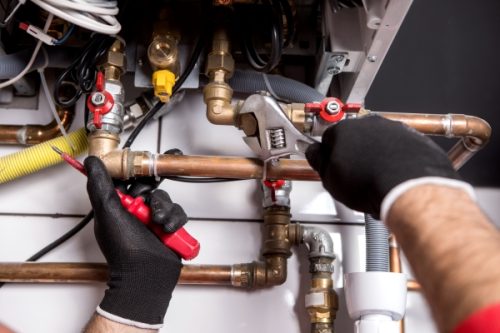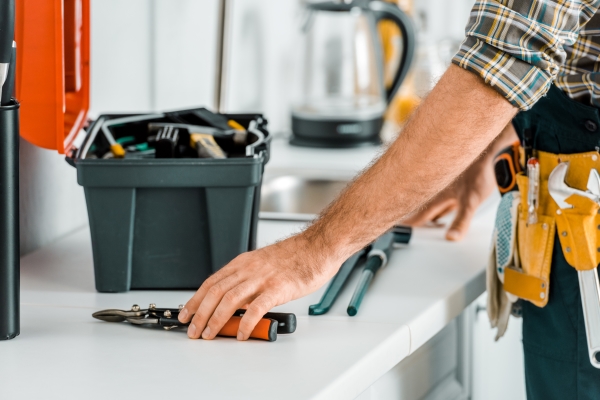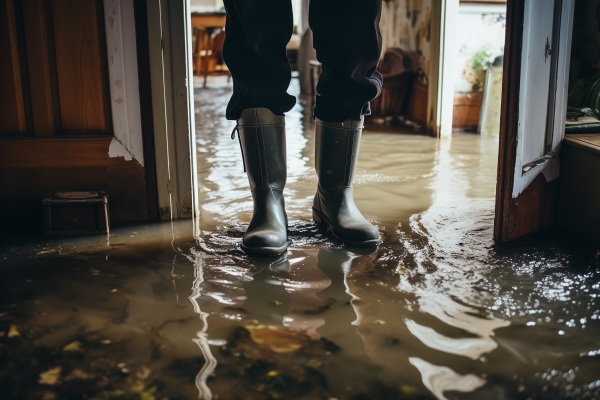
Insurance is a vital component for any business, but it’s especially important for plumbing companies in the UK. Plumbers work with water and gas, which can be dangerous if not handled properly, making accidents and property damage a constant risk. In addition, plumbers often work on expensive equipment and machinery, which can break down or cause injury if not maintained correctly. Therefore, having the right insurance policy in place is crucial to protect against financial loss and potential legal issues. Plumbers require specialised insurance coverage that addresses these unique risks, including public liability, professional indemnity, and plant and machinery insurance. By investing in comprehensive insurance, plumbing businesses can ensure they are protected from unexpected events and can continue to provide quality services to customers with peace of mind.
Public Liability Insurance
This type of insurance covers a wide range of scenarios, including accidents caused by slippery floors, falling objects, or faulty installations. It also covers damage to property, such as burst pipes or electrical shocks. The coverage provided by public liability insurance includes legal fees and compensation payments to third parties. For example, if a plumber accidentally causes a fire while working on a customer’s boiler, public liability insurance would cover the cost of repairing the damage and compensating the customer for any injuries or losses. Additionally, if a member of the public trips and falls on a wet floor at the plumber’s work site, public liability insurance would cover the medical expenses and legal costs associated with the incident.
Some common examples of situations where public liability insurance comes into play for plumbing businesses include:
- Slips, trips, and falls on wet or uneven surfaces
- Damage to property caused by faulty installations or repairs
- Accidental activation of fire alarms or sprinkler systems
- Electrical shocks or burns caused by faulty wiring or appliances
- Leaks or overflows causing water damage to property
Employer’s Liability Insurance
Employer’s liability of insurance protects employers against claims made by employees who are injured or become ill as a result of their work. The Health and Safety Executive (HSE) requires all employers to have a minimum level of £5 million in employer’s liability insurance cover.
This insurance is necessary because plumbing work can be physically demanding and hazardous, with workers exposed to a range of health and safety risks, such as manual handling, slips and trips, and exposure to chemicals. If an employee is injured or becomes ill as a result of their work, they may make a claim against their employer for compensation. Without employer liability insurance, plumbing businesses could face significant financial penalties, including legal fees, compensation payments, and damages.
The potential consequences of not having employer’s liability insurance can be severe. In addition to the financial costs, a lack of insurance coverage can damage a business’s reputation and lead to a loss of trust among employees and customers. Furthermore, if a business is found to be in breach of the law regarding employer’s liability insurance, it could face prosecution and fines.
Tools and Equipment Insurance

Plumbing tools and equipment are essential assets for plumbing businesses, and losing them due to theft, damage, or other unforeseen events can significantly disrupt operations and impact profitability. Insuring these assets is crucial to minimise financial risk and ensure continuity of work.
Policies can be tailored to meet the specific needs of individual businesses, covering everything from hand tools to large machinery. To assess the value of your tools and equipment accurately, it’s important to keep an up-to-date inventory of all items, including their age, condition, and purchase price.
Consider the following tips:
- Choose a policy that offers comprehensive coverage for all types of risks, including theft, damage, and loss.
- Check the policy’s excess amount, which is the portion of a claim you must pay out of pocket before insurance kicks in.
- Ensure the policy covers replacement tools or equipment hire.
- Review your policy regularly to account for changes in your business, such as new equipment purchases or expansion into new areas.
- Keep records of all insured tools and equipment, including serial numbers and proof of ownership, to facilitate the claims process.
- Consider bundling tools and equipment insurance with other business insurance policies, such as public liability or employer’s liability.
Business Interruption Insurance
Business interruption insurance provides financial support to businesses that experience unforeseen disruptions, allowing them to recover and resume normal operations. This type of insurance covers lost income, fixed expenses, and other related costs during the period of interruption. Common scenarios where business interruption insurance is crucial include property damage from natural disasters, fires, or vandalism, as well as utility failures, supply chain disruptions, and cyber-attacks.
Making a claim under business interruption insurance typically involves providing documentation of the cause of the disruption, such as police reports or expert assessments, and demonstrating the impact on the business’s revenue and operations. The insurer will then review the claim and provide compensation based on the terms of the policy, which may include payment for ongoing expenses, such as rent and salaries, as well as lost profits. It is essential to carefully review policy terms and conditions to understand what is covered and to ensure sufficient protection for the business.
Professional Indemnity Insurance

Professional indemnity insurance (PII) is a type of liability insurance that protects professionals, including plumbers, against claims made by clients or third parties for damages resulting from professional errors, negligence, or breach of duty. PII covers legal fees, defence costs, and damages awarded in such cases.
Plumbers need PII because they often work on complex projects, handle expensive materials, and provide critical services that affect people’s health and safety. Even a minor mistake can lead to significant financial losses or harm to reputation. PII shields plumbers from the financial consequences of such mistakes, enabling them to operate with confidence and peace of mind.
Examples of situations where PII proves invaluable include:
- Accidental damage to client property during installation or repair work
- Allegations of faulty workmanship leading to leaks, flooding, or structural issues
- Claims arising from non-compliance with regulations or industry standards
- Intellectual property disputes over design or patent infringement
- Negligent advice or misrepresentation in the course of professional duties.
Tailoring Your Insurance Coverage
Assessing your plumbing business’s unique needs is essential to ensuring you have adequate insurance coverage. Start by identifying the specific risks associated with your trade, such as tool theft, public liability, and professional indemnity. Consider the size of your business, the number of employees, and the scope of your projects. Customising your insurance policies to match these risks will provide you with comprehensive coverage and peace of mind.
Benefits of customising insurance policies include:
- Protection against specific risks tailored to your plumbing business
- Cost savings by avoiding unnecessary coverage
- Enhanced credibility with clients who appreciate your attention to detail
Plumbers should prioritise securing appropriate insurance coverage to safeguard their businesses against various risks. At a minimum, plumbers should consider public liability insurance, employers’ liability insurance, professional indemnity insurance, and tools and equipment insurance. Each policy provides vital protection against distinct risks, such as accidents, employee injuries, professional errors, and equipment damage or theft. Consulting with insurance experts helps ensure that your business receives adequate coverage tailored to its unique needs. Don’t wait until it’s too late; engage in proactive insurance planning to protect your plumbing business effectively. By investing time and effort in selecting suitable insurance policies, you can minimise potential disruptions, financial losses, and reputational damage. With the right insurance coverage, you can focus on growing your business while enjoying peace of mind.

